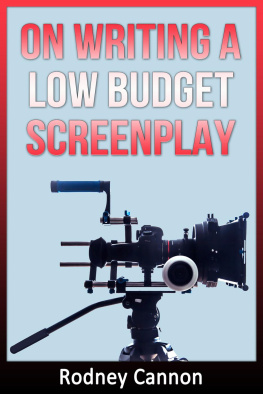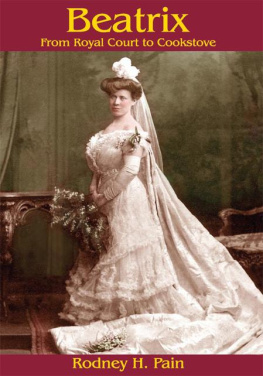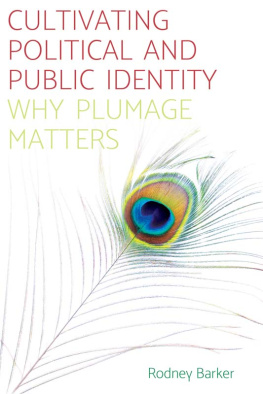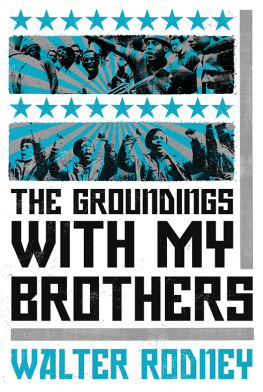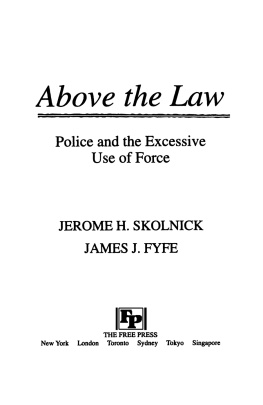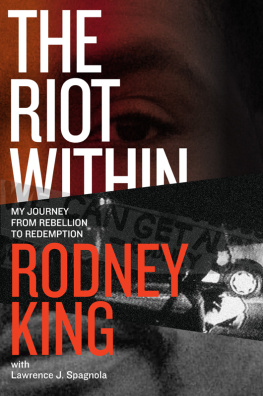READING RODNEY KINC
READING URBAN UPRISING
READING RODNEY KINC
READING URBAN UPRISING
EDITED AND WITH AN INTRODUCTION BY
ROBERT GOODING-WILLIAMS
Published in 1993 by
Routledge, Inc.
711 Third Avenue
New York, NY 10017
Published in Great Britain by
Routledge
2 Park Square, Milton Park,
Abingdon, Oxon, OX14 4RN
Transferred to Digital Printing 2009
Copyright 1993 by Routledge, Inc.
All rights reserved. No part of this book may be reprinted or reproduced or utilized in any form or by an electronic, mechanical or other means, now known or hereafter invented, including photocopying and recording or in any information storage or retrieval system, without permission in writing from the publishers.
Library of Congress Cataloging-in-Publication Data
Reading Rodney King/reading urban uprising / edited by Robert Gooding-Williams.
p. cm.
Includes index.
ISBN 0-415-90734-9. ISBN 0-415-90735-7 (pbk.)
1. Los Angeles (Calif.)Race relations. 2. Los Angeles (Calif.)
Ethnic relations. 3. RiotsCaliforniaLos AngelesHistory20th
century. 4. United StatesRace relations. 5. United States
Ethnic relations. I. GoodingWilliams, Robert.
F869.L89A26 1993
305.896073079494dc20 | 92-43381 |
CIP |
British Library cataloging in publication also available.
Publishers Note
The publisher has gone to great lengths to ensure the quality of this reprint but points out that some imperfections in the original may be apparent.
For Talia
Contents
Judith Butler
Ruth Wilson Gilmore
Houston A. Baker
Patricia J. Williams
Kimberl Crenshaw and Gary Peller
Cedric J. Robinson
Rhonda M. Williams
Michael Omi and Howard Winant
Melvin L. Oliver, James H. Johnson, Jr., and Walter C. Farrell, Jr.
An Interview with Mike Davis by the CovertAction Information Bulletin
Robert Gooding-Williams
Thomas L. Dumm
Sumi K. Cho
Elaine H. Kim
Jerry G. Watts
Henry Louis Gates, Jr.
Cornel West
On Being Stuck
Robert Gooding-Williams
If we want to be instructed by events, then we must not be in a hurry to solve them.
Paul Ricoeur
God gave Noah the rainbow sign.
James Baldwin
When an event becomes news, it acquires the aura of the extraordinary. News events are new events that the news represents as nonroutine. Television news, for example, when it highlights an event, tends to obscure the quotidian setting of that events occurrence. What Stanley Cavell characterizes as the theatricality of scripted news recitation helps to explain this tendency. Theatricality, here, pertains to the emphasis the news places on events themselves, treating them as intrusions upon ordinary situations, but rarely acknowledging the complicated ways in which events develop out of the situations which engender them. The drama of the news constructs social events as transient curiosities that have accidently supervened on the circumstances of day-to-day life.
Events that have ceased to be news we call old news. Old news consists of news events that we remember to have been news. A news event that has become old news, though we remember it as something extraordinary, is no longer new,
By the time this book is published, the beating of Rodney King, the subsequent trial in Simi Valley, and the fiery uprising in Los Angeles will have become old news in the minds of most Americans. Less than a year from this writing, all of these events will have gone the way of all news events. The conversations I imagine transpiring thennot in L.A., and perhaps not in California, but surely elsewhere in the United Stateswill sound something like this: A: A book about Rodney King? That trialthe first one I meanwas a long time ago. B: Not really, Los Angeles was burning just last April. A: Youre right, but it still feels like a long time ago. Im almost sure that it was before the election. But was it before or after the war in the Gulf? Receding into the foggy back-ground of a picture of the world that the news media, especially the television news media, creates for us, old newsbe it yesterdays famine, yesterdays war, yesterdays police brutality, or yesterdays trial verdictsslowly but surely ceases to command our attention, as we are set upon relentlessly by the insistent and dramatic intrusions of todays and tomorrows news. When the beating of Rodney King, the trial in Simi Valley, and the uprising in Los Angeles became news events, they acquired the aura of the extraordinary. When these same incidents become old news, they will strike most Americans as distant oddities whose auras bear little, if any, connection to their present circumstances.
A central purpose of this book is to challenge the construction of the Rodney King incidents (the beating, the trial, and the uprising) as old news, though not by transforming these incidents yet again into new and dramatic news events. Reading Rodney King/Reading Urban Uprising contests the representation of the Rodney King incidents asnews, viz., as new and dramatic news events, no less than it contests the remembrance of these incidents as old news. By stripping these incidents of the aura of the extraordinary, this book attempts to recover and to explicate their connections to the uneventful and ordinary realities which, while ignored by the news, persistently affect life in urban America. The uneventful is what the news coverage of current events lets disappear from view. It is, more exactly, that complex network of conditionssocial, economic, political, and ideologicalthat enable, influence, and shape the character of events, before they become news events. An explication of the uneventful factors and situations which gave rise to and determined the character of the Rodney King incidents is essential to any attempt to preserve these incidents as objects of public scrutiny and debatea theme to which I will return below. Only by engaging the complicated contingencies which permitted and gave rise to the Rodney King incidents; and
When he spoke to the press during the Los Angeles uprising, Rodney King, in his own way, alluded implicitly to the limitations of the news format. Were all stuck here for awhile, King said, in the course of his call for peace. Although he did not elaborate on his conception of what it is to be stuck, the generality of Kings remark, with its unspecified we and its unspecified here, suggested that being stuck is so basic and universal a condition as to be part of the essence of the uneventful. We are all stuck, but only for awhile, because we all eventually die. But before we die and wherever we are, we are prey to the world, routinely and relentlessly bound to circumstances and situations that lack the charisma essential to the news event.
Less well remembered than his T-shirt-commodified and much more newsy query, Can we all get along? Rodney Kings reference to being stuck identified a condition that is at once ontological and social. Being stuck, then, is a matter of being inexorably caught up in a network of political, economic, and cultural legacies that escape the aura of the extraordinary. Neither news nor old news, these legacies constitute the uneventful conditions of social existence which useful analyses of the Rodney King incidents cannot possibly ignore. By calling our attention to the facticity of being stuck, Rodney Kings own words provide an appropriate point of departure for such analyses.



